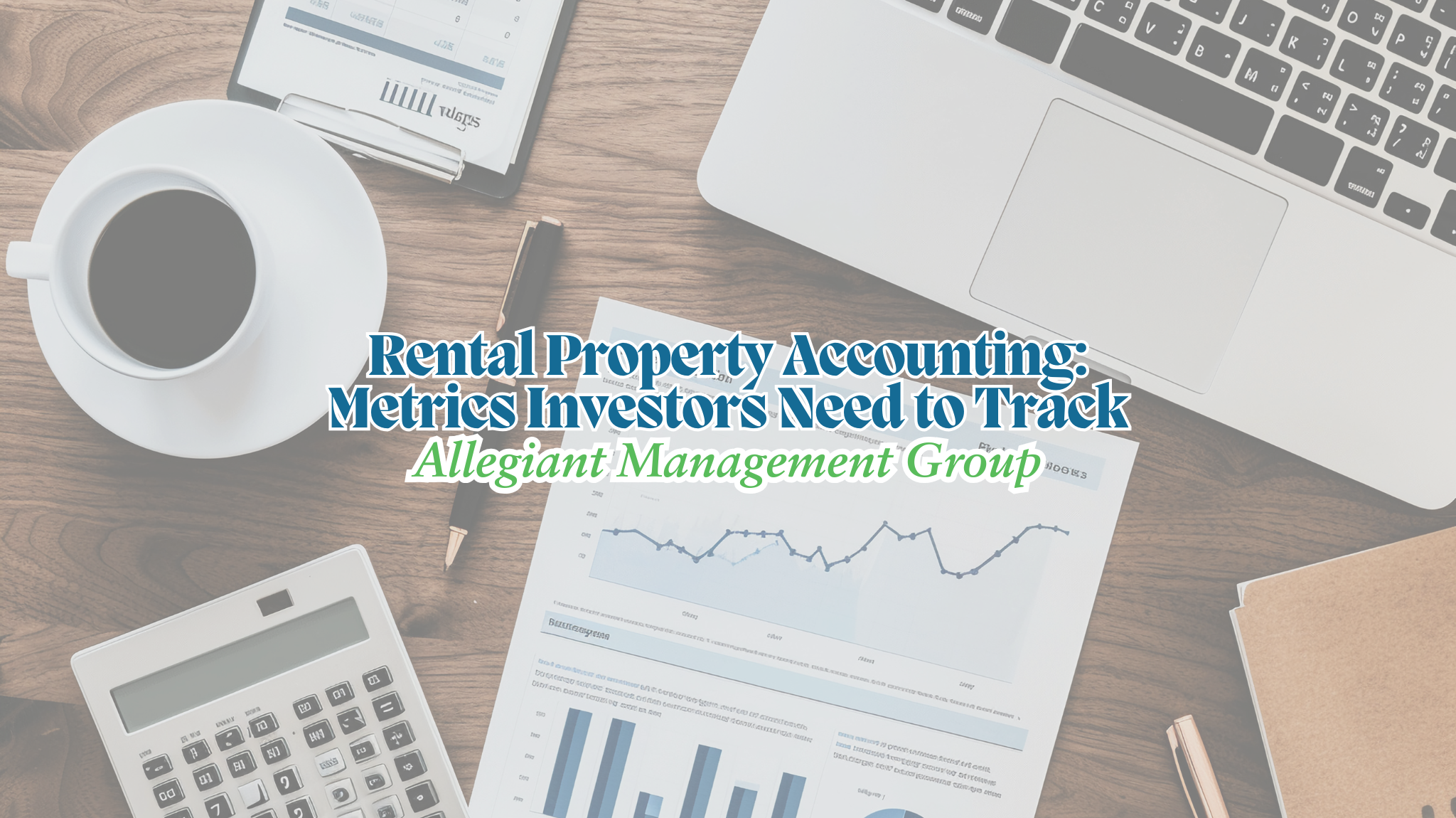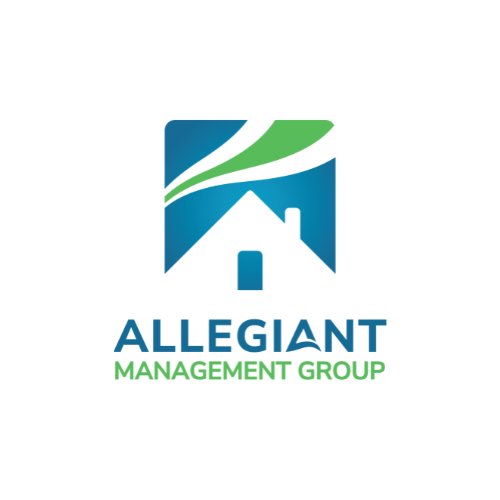Understanding Rental Property Accounting for Landlords

Do you know how much your rental property is costing you? Whether you're a new or experienced landlord, having a solid understanding of rental property accounting is essential to maximize profits and avoid financial pitfalls.
Accurate financial tracking can help you make informed decisions, reduce unnecessary expenses, and increase profitability. With the right tools, such as property management software and expert advice, you can stay on top of your financials without stress.
Even if you choose to work with an accountant or a property management company, familiarizing yourself with key accounting terms will allow you to maintain control over your investment. Here are three important metrics to know:
Gross Operating Income (GOI)
Gross Operating Income (GOI) is a crucial figure for assessing the total income generated by your rental property before expenses. GOI takes into account vacancy losses, ensuring you have a realistic view of how much your property is making.
To calculate GOI, start by determining the Potential Gross Income (PGI), which is the maximum rent your property could generate without any vacancies or payment issues. From this, subtract estimated vacancy losses, which include unpaid rents or unoccupied units.
For example, if your PGI is $3,000 per month but you estimate $300 in vacancy losses, your GOI would be $2,700. Understanding this metric helps you project income more accurately and plan for future investments.
Net Operating Income (NOI)

Net Operating Income (NOI) represents your profit after deducting all operating expenses. Unlike GOI, NOI accounts for property expenses such as maintenance, insurance, taxes, and property management fees.
To calculate NOI, follow these steps:
- Sum up all revenue streams, including rent, application fees, and any additional services provided to tenants.
- Next, subtract operating expenses. This can include property taxes, property management fees, routine repairs, and insurance premiums.
If your monthly income is $2,700 and your expenses amount to $1,200, your NOI would be $1,500. This figure reflects the profitability of your property after operational costs and helps you identify areas where cost reductions are possible.
Cash Flow
Cash flow is the net income you earn after all expenses have been accounted for. It's one of the most important metrics for landlords to monitor regularly, as it indicates the overall financial health of your rental property.
Cash flow is often used as a simple yet effective measure of success. Positive cash flow indicates that your property is profitable after expenses, while negative cash flow suggests you may need to reassess your strategy, increase rent, or cut costs.
For example, if your monthly income is $2,700 and your total expenses, including mortgage payments, are $2,500, you have a positive cash flow of $200.
Conversely, negative cash flow means you're losing money every month, a red flag that may require selling the property or making improvements to increase income.
Why Accounting Matters for Property Owners
Effective rental property accounting isn't just about staying compliant with tax laws—it directly impacts your investment's long-term success.
Many landlords overlook the importance of regularly monitoring these metrics, resulting in financial instability and missed opportunities for growth.
If you're struggling to keep up with the financial side of property management, it's time to seek professional help.
Work With Allegiant Management Group: Your Local Property Management Experts

At Allegiant Management Group, we specialize in providing comprehensive property management services for rental property owners in Kissimmee, FL.
Our expert team not only handles day-to-day property operations but also offers full accounting services to ensure your financials are always in order.
We utilize a secure, cloud-based accounting system that allows property owners to access financial data, reports, and performance metrics at any time. This transparency gives you peace of mind while we take care of the details.
In addition to accounting services, our property management solutions include tenant screening, lease management, maintenance coordination, and more.
We aim to maximize your rental income while minimizing the stress of being a landlord.
Contact Allegiant Management Group Today
Ready to take control of your rental property's financial health? Contact us today to learn more about how we can help streamline your property management and accounting processes.
Our team is here to help you achieve long-term success in the Kissimmee rental market.
Frequently Asked Questions (FAQs): Rental Property Accounting
Why is rental property accounting important for landlords?
Rental property accounting ensures accurate financial tracking, tax compliance, and profitability analysis. It helps landlords manage expenses, track rental income, and maximize deductions. Proper accounting prevents legal issues, streamlines reporting, and supports informed investment decisions. Clear financial records also simplify audits and improve cash flow management.
What are the three key metrics every landlord should know?
Every landlord should track these three key metrics:
- Net Operating Income (NOI): Rental income minus operating expenses, showing property profitability.
- Cash Flow: Income after all expenses, including mortgage payments, indicating financial health.
- Cap Rate: NOI divided by property value, measuring investment return.
How do you calculate Gross Operating Income (GOI)?
Calculate Gross Operating Income (GOI) by subtracting vacancy losses from total potential rental income:
GOI = Gross Rental Income – Vacancy Losses
Include additional income sources like parking fees or pet rent. GOI reflects a property’s total effective income before operating expenses.
How do you determine Net Operating Income (NOI)?
Calculate Net Operating Income (NOI) by subtracting operating expenses from Gross Operating Income (GOI):
NOI = GOI – Operating Expenses
Exclude mortgage payments, taxes, and depreciation. NOI measures a property’s profitability before financing costs.
What does cash flow reveal about a rental property?
Cash flow reveals a rental property’s profitability and financial health. Positive cash flow means income exceeds expenses, ensuring sustainability and growth. Negative cash flow indicates losses, requiring adjustments. Tracking cash flow helps landlords assess investment performance and plan for future expenses.
How can landlords improve their financial tracking?
Landlords can improve financial tracking by:
- Using accounting software for automated expense and income tracking.
- Separating business and personal finances with dedicated accounts.
- Keeping detailed records of rent payments, maintenance, and deductions.
- Regularly reviewing cash flow and profitability for informed decisions.
How does Allegiant Management Group assist landlords with accounting?
Allegiant Management Group assists landlords with accounting by tracking rental income, managing expenses, and ensuring tax compliance. They provide financial reporting, streamline bookkeeping, and optimize deductions. Their services help landlords maintain accurate records, improve cash flow management, and simplify end-of-year tax filing.
How can I get professional help with rental property accounting?
Get professional help with rental property accounting by hiring a property management company, working with a real estate accountant, or using specialized accounting software. These services ensure accurate financial tracking, tax compliance, and expense management, helping landlords maximize profits and simplify reporting.
Disclaimer: This article is for information purposes only and is not intended as legal advice. Consult a qualified attorney for legal guidance on squatter-related matters.
Blog Updated 03/15/2025



